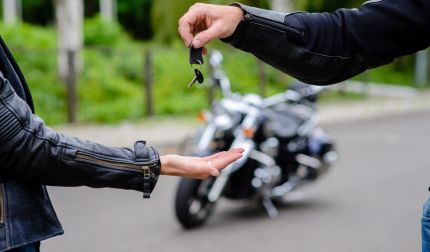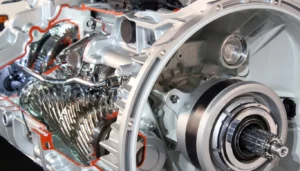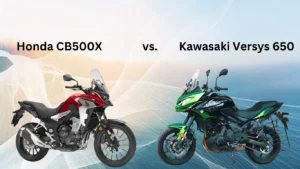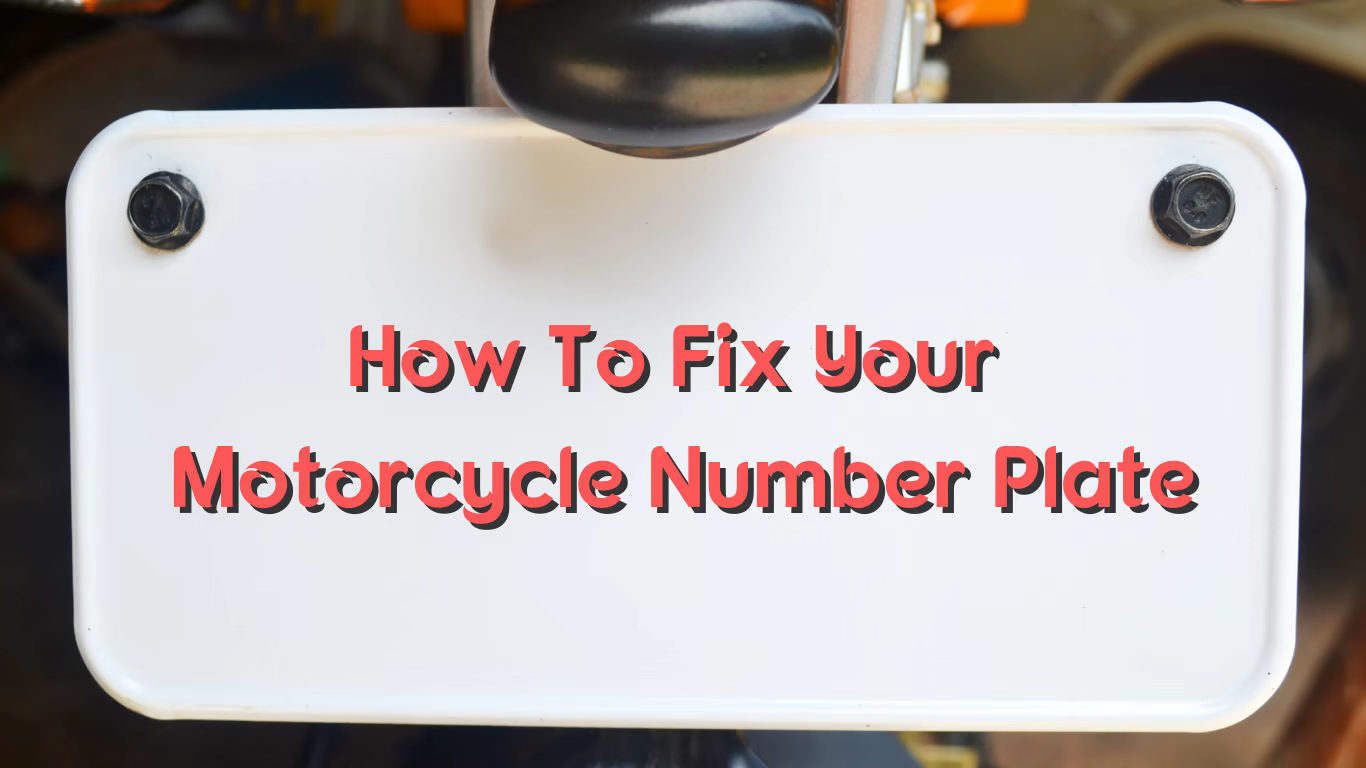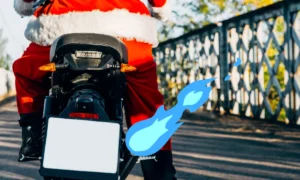If you’ve ever lost your motorcycle key, you’ll know how frustrating this situation can be. That initial panic can escalate rapidly if you’re far from home or saw that ghastly moment coming but didn’t prepare for it. Ideally, you should always have a spare key readily available. But what if you don’t?
Do not worry; we have put together some handy solutions to help get you back on the road. This piece will enlighten you on what to do when your motorcycle key is missing, and how to prevent such an inconvenience in the future. So, let’s get rolling!
The Panic Sets In: What to Do When You Realize Your Motorcycle Key is Lost
Reality comes running full throttle when you can’t find your motorcycle key. Your heart rate skyrockets; panic sets in. Before you succumb to despair, remember that every problem has a solution. In this case, it’s all about knowing the right steps to take.
Stay Calm and Assess the Situation: Step-by-Step Guide
The moment you realize your motorcycle key is missing, it’s easy to be washed over with panic. However, keeping calm is crucial for you to recall essential details and initiate the right measures to solve your issue. Here’s a step-by-step guide to help you navigate the situation wisely, increase your chances of finding your lost motorcycle key, or efficiently take alternatives.
Step 1: Pause and Take a Deep Breath
It’s natural to feel stressed, but it’s important to stay calm. Take a deep breath and try not to panic. Panicking won’t speed up the process of finding your key. On the contrary, by remaining calm, you can think clearly and recall precisely where you might have left your keys.
Step 2: Visualize Your Last Interactions with the Key
Take a moment to jog your memory back in time. When and where did you last see or use the key? Did you place it in your pocket while at the grocery store? This introspection might just hold the key to recovering your lost motorcycle keys.
Step 3: Quickly Check the Most Common Places
In many cases, the solution might be easier than you think. You might have left the key in the ignition or in your other pants’ pocket. Start by examining these obvious places before extending your quest.
Step 4: Reach Out to Others
Ask your friends, family, or whoever you were with if they’ve seen the key. They might just have found it and forgot to inform you. Plus, having more eyes looking for the key will expedite the searching process.
Step 5: Try to Recall Detail
- What were you doing when you last had the key?
- Did you interact with anyone, particularly someone who might have noticed your key?
- Did you visit any places where the key might have fallen out, e.g., some chairs have gaps where small items can easily slip out.
Retrace Your Steps: Where to Begin Searching for Your Lost Motorcycle Key
As you grapple with the reality of a missing motorcycle key, it’s okay to feel discombobulated. But don’t let that frantic feeling dictate your actions. Instead, use it as a fuel to jumpstart your search operation. Begin by retracing your steps, leading up to the moment you noticed the key’s absence. This detective-like approach has brought fruitful results for many riders in the past, and it may also guide you to your missing motorcycle key. Here’s a plan of action to get you started.
Pinning Down the Timeline
Begin by pinpointing the timeline. When was the last time you held the key? Recall the day, the hour, and even the minute if possible. The more specific you are with your memory, the better your chance of locating the key.
Retrace Your Journeys
Give a second thought to all the places you’ve been since you last saw your key. Any location, no matter how insignificant it might seem, could be your key’s current place of residence. Parks, cafes, restrooms, the motorbike parking lot – question every spot, and do not leave any stone unturned.
Inspection of Clothing and Gear
Never underestimate the hiding powers of your pockets. Often, keys silently slip into the crevices of our coats, bags, or motorcycle gear and stay there unnoticed. So take a meticulous approach in rummaging through your clothing and rider gear you wore during your recent journeys. Also, make sure to shake and inspect the folds and corners; you may hear a familiar jingle answering you back.
Envisage the Scenarios
Think about all potential situations that may have resulted in the loss of your motorcycle key. Is it possible it fell out of your pocket when you pulled out something else? Could you have set it down temporarily and forgotten to pick it up? Or, could it be that a child or pet played with it and subsequently misplaced it? If any of these situations sound familiar, they’re a great starting point to concentrate your search efforts.
Plausible Locations
Your home, workplace, and public places are a few plausible spots where the key might have fallen off or got left behind. Look in and around the furniture, inside your drawers, in the elevator, and outdoor premises. Talk to folks who manage lost and found departments, if available. Your motorcycle key might just be waiting for you to claim it!
- Search every room, small and large, in your home and office.
- Check in the car, the garage, or other vehicles you’ve used recently.
- Don’t disregard public areas; retracing your steps in parks, cafes, and the like might help.
- Contact the respective authorities or staff who manage lost and found sections in public establishments or your workplace.
Ask for Help: Enlisting Others to Aid in Your Search
When finding yourself in the unfortunate position of losing your motorcycle key, it’s important not to overlook the value of enlisting others in your search. The more eyes you have looking, the higher your chances of recovering the key. From friends, family, to neighbors or any parties you may have interacted with recently, all can be instrumental in helping you locate the key.
Inform Friends and Family
Begin by contacting those who you’ve been around recently, such as friends and family. They may have unknowingly come across your key. Plus, notifying a larger group will increase the likelihood of someone spotting your lost item.
Reach Out to Neighbors
Secondly, ask your neighbors if they’ve noticed anything out of the ordinary in the area that could be related to a lost key. They might have observed something significant while you were not present, or have spotted the key around your property without realizing its relevance.
Check in at Recent Venue Visits
If you were out and about before you lost the key, reach out to places you last visited. Staff at cafes, restaurants, offices, or other venues might have found the key and kept it safe, pending identification of the owner.
Appeal to Your Social Network
Utilize your social media platforms by posting an appeal about your lost key. It’s a fast and wide-reaching way to get the message to a large audience, and you might be surprised by the power of a widespread appeal.
Involve Local Community Groups
Finally, local community groups can be of great assistance. Membership to regional forums, community pages, or neighborhood watch meetings can help spread the word about the missing key. It’s a strategy that brings together the power of collective vigilance to find your lost item.
Scour the Obvious Places: Checking Common Areas for the Missing Key
, your first thought may be panic. But remember, it’s often the obvious places that hold the answer. Therefore, spending ample time checking common areas for the missing key can potentially save you from further distress.
If You’re at Home
When you’re at home, the key may just be hiding in plain sight. Common areas to look include coat pockets, laundry bins, cluttered surfaces, and drawers. The possibility of the key finding its way into unusual spots, like the refrigerator or even a trash bin, can’t also be ruled out. So, broaden your search as much as you can.
If You’re Away From Home
If you’re outside of your home environment, consider all the places you’ve been and the activities you’ve been doing. The key could have slipped out of your pocket in your vehicle, or while you were at a restaurant, store, or other public place. Moreover, visually revisit your path and any potential areas where the key could have been lost.
Places Frequently Overlooked
There are a few spots often overlooked in a hurried search. These include underneath furniture, outdoor spaces (like the garden or porch), and within other personal belongings (like bags or luggage). Remember, patience and thoroughness play a crucial role in a successful search. So, check, and then re-check these places.
Workplaces and Commute Routes
If the key was with you during your commute, consider your path and the various places you stopped along the way. It’s well worth a quick check of your parking spot, your office (including restrooms and breakrooms), and any shops or eateries you visited during your commute. Enlist the help of colleagues if necessary.
Using the Process of Elimination
When checking for the missing key in obvious places doesn’t yield results, it’s time to use the process of elimination. Begin with ruling out the areas where you’re certain it can’t have been misplaced. Then, focus your attention on the less-visited areas or on the complex spaces like storerooms, garages, or attics. Be systematic and methodical in your search to increase your chances of recover.
Lost and Found: Places to Check if Your Motorcycle Key is Misplaced
.You search your pockets, retracing your steps, yet it still seems to be lost. But don’t despair! People often overlook some common places where lost keys may be hidden. In this section, we’ll examine a variety of spots to double-check, keeping in mind that the location of your key largely depends on your unique daily routine and habits.
Familiarize Yourself With Your Daily Routine
From your morning coffee run to that evening visit to the supermarket, your motorcycle key probably follows you throughout the day. Therefore, it’s worth rethinking your daily activities closely. Could you have accidentally left your keys at the local diner? Or possibly, they fell out of your pocket at the gym? Sit and reflect on every place you’ve been in the last 24 hours, and re-check those spots diligently.
Look Around Your Workspace
Many people forget to check their workplaces, which are common sites where keys are often misplaced. It could be left at your desk drawer, the cafeteria, the restroom, or even in some nooks and crannies in the office. Check all these spaces thoroughly, remembering to look in unexpected places. It’s not unusual to find lost keys slipped between the couch cushions or under your desk.
A Thorough Search at Home
Most commonly, the lost key is relatively close, potentially within the confines of your own home. Consider looking into the pockets of recently worn clothes, kitchen drawers, under the bed, or even the refrigerator. People put things in odd places unknowingly when they are distracted. Also, sweep through your garage or parking area; the runaway key might be found lying there!
Examine Your Personal Belongings
Keep in mind that your keys could be hidden in plain sight. Check your usual bags, backpacks, or purses, and don’t forget your jacket pockets and gloves, especially if it’s the winter season. Sometimes, keys can be accidentally stuffed in the least expected places, like tucked in a book, hidden in a shoe, or nestled in a seldom-cleaned corner of a bag.
Re-Check Frequently Visited Locations
Last but not least, consider places you frequently visit. These would include frequently traveled places such as your local grocery store, your favorite restaurant, or the recreation center where you go for yoga. These are places where you could have unwittingly dropped the key. Don’t hesitate to ask the staff to check for lost keys or to keep an eye out for your missing item.
Contact the Authorities: Reporting a Lost Motorcycle Key
As a responsible motorcycle owner, it might seem logical to report lost motorcycle keys to the authorities. However, should this always be the case? Let’s investigate this a bit further and discuss when it may be necessary to involve authorities, how to go about doing it, and the options available to you afterward.
When Should You Report a Lost Motorcycle Key?
Reporting a lost motorcycle key to the authorities isn’t always necessary. However, if you believe your keys have been stolen or suspect foul play, involving the authorities could prove beneficial. They could not only help you locate the missing keys but also ensure your motorcycle’s security.
How to Report a Lost Motorcycle Key?
If you’ve decided to report your lost key, you should contact your local police station. Provide them with a detailed account of when and where you last saw your motorcycle key. Information like any suspicious activity observed or any specific details about your key can be helpful.
What Happens After Reporting a Lost Key?
Once you’ve your reported lost key, you should stay in touch with the authorities and provide them with any additional information that may come up. They might have a lost and found department, where they could track or keep your key if found.
What Are Some Possible Consequences of Reporting a Lost Key?
Although it seems like a sensible step, reporting a lost key might have some potential consequences. For instance, if your keys were stolen, someone could potentially use them to steal your motorcycle. Therefore, consider changing your locks after reporting the incident.
Alternatives to Reporting a Lost Key
Reporting isn’t the only option. You could also contact a professional locksmith to have your locks replaced or reach out to your motorcycle manufacturer for a replacement key. Another alternative could be contacting your insurance provider to check if your policy covers lost keys and their replacements.
Calling for Backup: Contacting a Professional Locksmith
There may be times when even a detailed search yields no results and your motorcycle key remains lost. You’re not out of options. An answer could be just a phone call away. It’s time to consider contacting a professional locksmith. They have the skills and the equipment to create a duplicate key for your motorcycle. Here are some important things you should know about this option.
When to Call a Locksmith
While it’s natural to try and search for your missing key, avoid wasting too much time. If you’ve retraced your steps, asked around, and scoured your surroundings with no success, it’s time to call a locksmith. Time is of the essence, especially if you rely on your motorcycle for daily commuting.
Choosing a Reputable Locksmith
It’s essential to select a skilled and reputable locksmith. Do your research before choosing one. Look at online reviews and ask for recommendations. Remember, a locksmith with specific experience with motorcycles will likely be your best bet.
What to Provide Your Locksmith
When contacting a locksmith, try to provide them with as much information about your motorcycle as possible. The make, model, and year of your motorcycle will assist in key duplication. If you have a copy of the key code or a picture of the lost key, that’s even better.
Locksmith Services and Costs
Keep in mind that a locksmith can provide various services beyond just making a copy. If required, they can replace the ignition switch or create a customized key. Expect to pay for these additional services. Prices can vary depending on the complexity of the job and your motorcycle model.
Mapping Out a Plan With Your Locksmith
After you’ve found a reputable locksmith, discuss your situation and map out a plan. This may include visiting the locksmith’s shop or arranging a visit at your location. Be prepared to provide identification and proof of ownership to ensure a smooth process.
Unlocking the Solutions: Different Methods to Start Your Motorcycle Without a Key
If you’re faced with a lost motorcycle key, all hope is not lost! It’s certainly a stressful situation, but you are not left without options. Believe it or not, there are several methods to start your motorcycle without a key. Please note that these methods should only be used in emergency situations and by the legal owner of the motorcycle. Misusing these tips could lead to criminal charges. Below, we’ll delve into the possible solutions in detail.
1. Use a Screwdriver
A surprising alternative to start your motorcycle involves a straightforward tool you may already have – a screwdriver. While this isn’t recommended as a long-term solution, it could help in the short run. Essentially, you’ll need to identify the motorcycle’s ignition switch, then insert and turn the screwdriver. Be aware that this can potentially cause damage, so proceed with caution.
2. Try Hotwiring
Another emergency method is hotwiring. This should only be attempted in dire circumstances, as it involves tampering with your motorcycle’s wiring system. It’s crucial that you have a basic understanding of your bike’s electronic system to avoid causing further issues. While the specifics can vary by model, the general concept is to connect the ignition and battery wires to start the engine.
3. Utilize a Bump Key
A bump key is a special key designed to manipulate the pins inside a lock to open it. You’ll insert the bump key into the ignition, then apply a slight turning pressure while striking it to bump the pins into place. This option requires specialty equipment and careful technique but can be successful in emergency situations.
4. Implement a Motorcycle Alarm Bypass
If your motorcycle has an alarm system with an immobilizer, you might be able to bypass it. This will involve some technical knowledge and could entail inserting a resistor into the ignition circuit or bypassing the system entirely. Though effective, this method should be used cautiously and as a last resort to avoid damaging your bike’s electrical system.
5. Exploit a Manufacturer Flaw
In some instances, motorcycles may have manufacturer flaws that can allow them to start without a key, like a kick-start lever or a weak ignition switch. These exploits vary significantly across different models and should only be used if you’ve ruled out all other options. Remember, these methods can potentially cause damage or void any existing warranties.
Temporary Fixes: Quick Solutions to Ride Your Motorcycle in the Meantime
While finding a lost motorcycle key can be time-consuming, you may find yourself in need to move your bike immediately. Fortunately, there are temporary solutions that might help you ride your motorcycle even without the key. Whether using a tool, exploiting technical loopholes, or leaning on your manufacturer’s flaws, you can still fire up that engine and get along your way. However, bear in mind that these methods should be seen as temporary solutions and are not meant for long-term use.
The Screwdriver Trick
You may have heard about using a screwdriver to start a vehicle when the key is lost. It’s similar with a motorcycle. The idea is to force the ignition cylinder open using a screwdriver. While effective in some cases, take heed that this method could potentially damage your motorcycle’s ignition. This is best used as a final resort and we suggest you to consult with a professional before doing this.
Trying the Hotwiring Method
Hotwiring is another temporary fix that’s typically seen in movies. This involves connecting different wires to bypass the ignition switch. It’s necessary to identify which wires are responsible for the ignition process. Again, this is an extreme situation solution and best conducted with utmost discretion, to avoid inflicting any electrical damage to your motorcycle.
Using a Bump Key
A bump key, when inserted into the ignition and gently tapped, can potentially stimulate a key’s function. In the motorcycle world, this method is often considered a quiet, discreet way to bypass the need for real keys. Note, though, you need to have a bump key lying around already for this method to work!
Experimenting with Motorcycle Alarm Bypass
In particular cases, it’s viable to bypass your motorcycle’s alarm system to fire up the engine. However, techniques can variate greatly due to the wide range of models and manufacturers. You may need to take a look at your motorcycle manual or research online to find the suitable method for your specific model. Be conscious of the potential risks to your bike’s security system.
Exploiting Manufacturer Flaws
Ironically, some manufacturers inadvertently make it convenient to start their motorcycles without a key. Such oversights and inherent flaws in design can be exploited for temporary use. However, knowledge of these flaws largely remains within biker communities or specific internet forums. Please keep in mind that manufacturers don’t recommend this method and that it might void your warranty.
Get a Spare: Why Having a Duplicate Key is Essential
Ever lost your motorcycle key and spent most of your day retracing your steps, searching, and panicking? You’re not alone. It’s a common scenario faced by many motorcyclists at some point. However, this heart-stopping problem could be easily averted if you had one simple thing – a spare key. Here’s why having a duplicate key matters in the grand scheme of motorcycle ownership:
Peace of Mind
Knowing you have a backup key ready to save the day in more-than-likely events of losing your original, grants you a significant peace of mind. Misplaced your key? No worries. Just grab your spare and you’re back on the road in no time.
Cost-Effective Solution
Getting a spare key made when you have an existing one is typically less expensive than when all keys are lost and a new one needs to be created from scratch. Your pockets will thank you for having a spare ready.
Time-Saving
Imagine the time spent on retracing your steps, searching, contacting locksmiths and possibly even getting your bike towed. Having a spare key on standby means you can save these precious hours and get back to riding quickly.
Decreases Risk of Damage
In desperate times, motorcyclists have been known to attempt hot-wiring or forcing the ignition open. This could cause severe damage to your motorcycle’s ignition system and potentially other electrical components. A spare key avoids these risks.
Resale Value
When it’s time to sell your bike, having two keys can increase the resale value. A second key can reassure prospective buyers that they’re getting a good deal, and it eliminates their worries about replacing a lost key.
Preventing Future Mishaps: Tips to Keep Your Motorcycle Keys Safe
-safe methods, you can significantly reduce the chances of misplacing your motorcycle key again. Seemingly small actions could save you from experiencing the stress and inconvenience of a missing key. Here are a few tips to ensure your motorcycle keys always remain safe and easily accessible.
Key Chains and Key Finders
Key chains are a simple yet effective key-loss remedy. Opt for a sizable, distinct, brightly colored one; this way, your keys will be harder to lose and easier to spot. Moreover, technology has given us gadgets like key finders. These electronic devices allow you to locate your keys quickly by triggering an audio alert on their built-in speaker.
Secure Storage
A designated key area equates to organization and safety. This could be a key rack, drawer, or any specific place in your home where you consistently keep your keys. Once this habit is integrated into your daily routine, the chances of losing your keys will decrease drastically.
Routine Check-ins
Just as you might subconsciously pat your pocket to make sure your wallet is still there, so too should you do regular check-ins with your motorcycle keys. Making this a natural part of your routine, such as before leaving a place or upon entering your home, will keep you aware of your key’s whereabouts at all times.
Spare Keys
Having a spare key is a form of insurance against losing your primary key. Classically, the best way to deal with loss is to always have a backup. Keep this spare key somewhere safe and accessible, like with a family member or in a hidden location at your home or work. However, never store it on your motorcycle.
Invest in Keyless Entry
If forgetting or losing your keys is a common issue, it may be time to consider investing in keyless entry technology. Most modern motorcycles offer this feature, enabling your motorcycle to start at the push of a button given that the key fob is within a certain range.
Insurance Coverage: Understanding if Your Lost Motorcycle Key is Covered
It’s easy to overlook, but insurance coverage is a crucial aspect to consider when you’ve misplaced your motorcycle key. Most people don’t realize that their policy may actually provide some assistance in such an event. So, how do you find out if your insurance will cover your lost key? Let’s take a closer look.
Understanding Your Insurance Policy
First and foremost, get acquainted with your insurance policy. While all insurance companies offer different coverages, some might cover the cost of replacing lost or stolen keys. Understanding the terms, conditions, and coverages of your insurance policy can save you not only time but also money.
Reach Out to Your Insurance Company
Don’t hesitate to get in touch with your insurance provider. Explain the situation and ask if your policy covers a lost motorcycle key. Although it may seem a little daunting, remember, they are there to help you. It’s part of their job to answer these types of queries.
Assess Coverage and Determine Next Steps
Once you have confirmed your policy details, you can assess the extent of your coverage. If your policy does cover a replacement, learn about the steps involved. This might include filling out forms, providing proof of ownership, or even filing a police report depending on your insurer.
Extra Protection with Riders or Endorsements
If your standard policy doesn’t offer coverage for replacement keys, it may be worth looking into riders or endorsements. These are add-ons to your insurance policy, providing additional coverage for lost or stolen keys.
What If You Don’t Have Coverage?
If your insurance policy doesn’t cover lost keys, don’t worry. There are other options—like contacting a professional locksmith or exploring keyless systems—that can get you back on the road. Just remember, for future reference, you may want to consider updating your policy to include this type of coverage.
Replacing Your Lost Key: The Process and Costs Involved
One of the most practical solutions when you lose your motorcycle key is to simply replace it. This process, though, can come with various steps and associated costs depending on your specific motorcycle model and the type of key used. Let’s delve into the procedure for replacing your lost motorcycle key, and demystify the expenses involved.
1. Identifying the Key Type
The first step in replacing a lost key is identifying the type of key your motorcycle uses. Some bikes use traditional keys, others appropriate high-tech keys embedded with electronic chips. Traditional keys are typically easier and cheaper to replace.
2. Consulting the Motorcycle Manufacturer
Your motorcycle manufacturer may hold the information necessary for producing duplicates of your original key. Typically, the owner’s manual or a placard on the bike itself may also feature the key code.
3. Seeking Professional Services
If you’re unsuccessful with the aforementioned steps or looking to bypass the DIY path, you can make use of professional locksmith services. Locksmiths who specialize in motorcycle keys can navigate through advanced locking systems and generate keys even without a copy.
4. Considering Associated Costs
The costs involved in key replacement depend on numerous factors. These include the type of key, whether a professional locksmith is involved, and whether you have access to information like the key code. Anticipate being charged anywhere between $10 to $250 for replacing motorcycle keys.
5. Exploring the Insurance Route
Some insurance policies might cover the costs involved in replacing your motorcycle key. Be sure to consult your insurance provider about this aspect to decrease the out-of-pocket costs for the key replacement.
Electronic Options: Keyless Entry Systems for Motorcycles
As technology continues to advance, keyless entry systems for motorcycles have become increasingly popular. An ideal solution to avoid the stress of lost keys, these systems replace traditional keys with wireless controls or fingerprint scanners. Let’s take a closer look at how these systems function and their potential benefits.
Understanding Keyless Entry Systems
A keyless entry system allows you to start your motorcycle with a digital fob or a fingerprint sensor rather than a traditional key. The fob communicates with your motorcycle wirelessly, disarming the bike’s security system and allowing you to start it with just a press of a button.
Benefits of Keyless Entry Systems
Keyless entry systems offer several key advantages. They offer enhanced security as they are typically equipped with anti-theft features. Moreover, they completely eliminate the risk of losing keys and provide a convenient, swift, and seamless start-up experience.
Costs and Installation
While the cost of a keyless entry system can vary depending on the brand and model, they’re generally affordable and worth the investment for the added convenience and security. The installation process can often be completed by the owner, or else by a professional if preferred. It’s recommended to familiarize yourself with the installation process to ensure your system functions properly.
Maintenance and Operational Challenges
Like any tech device, keyless entry systems require some maintenance. This might include replacing batteries in the fob or updating the system software. Some motorcyclists also raise concerns about the operational reliability of these systems, particularly if the signal between the bike and the fob is interfered with or the system fails.
Choosing the Right Keyless System
With so many options available in the market, it’s important to select a keyless system that suits your specific needs. Factors such as the brand reputation, cost, ease of installation, and user reviews should be considered. Make sure the system is compatible with your bike’s model and fits in your budget. It’s an investment towards a stress-free ride, after all.
Learning from Experience: Lessons and Stories from Others Who Lost Their Motorcycle Keys
their motorcycle keys can provide valuable insights. These stories don’t just convey the stress and frustration, but also illustrate the resourcefulness, resilience, and patience required to handle the situation effectively. We’ve compiled a few such experiences to help you learn from their mishaps, save you from committing similar errors, and guide you to better manage your keys.
Appreciating the Importance of Spare Keys
John, an avid motorcycle rider, found himself once without the key to his beloved bike. After hours of frantic searching and failing to retrieve the key, he called a professional locksmith. Not only did the locksmith help John gain access to his motorcycle, but he also cut a spare key immediately. This incident highlighted the significance of having a spare key, reminding John to keep duplicates for his other possessions as well.
Misplacing Keys during Travels
During a road trip, Mia lost her motorcycle key at a rest stop. Left stranded miles away from home, she understood the importance of a GPS key finder. If implemented earlier, Mia could have used the device’s tracking ability to locate her lost key promptly.
Benefit of Remote Keyless System
After losing his keys multiple times, Alex decided to update his vehicle with a keyless entry system. This upgrade allowed him to unlock and start his motorcycle with a remote or a smartphone app, thereby eliminating the hassles of lost keys. Although initially costly, Alex found this to be a worthy investment protecting him against potential lockouts and loss.
Realizing the Value of Insurance
Lisa lost her motorcycle key in a crowded festival, unable to recall the key’s last location among the multitude of activities. The process of replacing the key through her bike’s manufacturer turned out to be significantly expensive. The experience taught Lisa the value of insurance coverage for lost keys, prompting her to contact her insurance provider to add the necessary endorsement to her policy.
The Art of Mindful Key Keeping
Sam’s tale of misplacing keys extends beyond his motorcycle. From his house to his locker, he frequently struggled to keep track of his keys. This recurring pattern forced Sam to establish a mindful practice concerning his keys: assigning a designated ‘key place’ at home, regular check-ins to ensure they’re in place, and never removing the keys from his pocket frivolously.
Conclusion
Reflecting on the journey of dealing with a lost motorcycle key can seem overwhelming, but remember – every problem has a solution. Stay calm, think systematically, and use the resources you have on hand- friends, family, community, and professional services like locksmiths. Each situation is unique, but the outlined steps provide a solid guide to resolving it.
Investing in preventative measures such as spare keys, key finders, and even keyless entry systems can safeguard you from a similar situation in the future. Keep in mind, insurance plays a crucial role not only in protecting your motorcycle but potentially mitigating the costs should you ever lose a key again.
